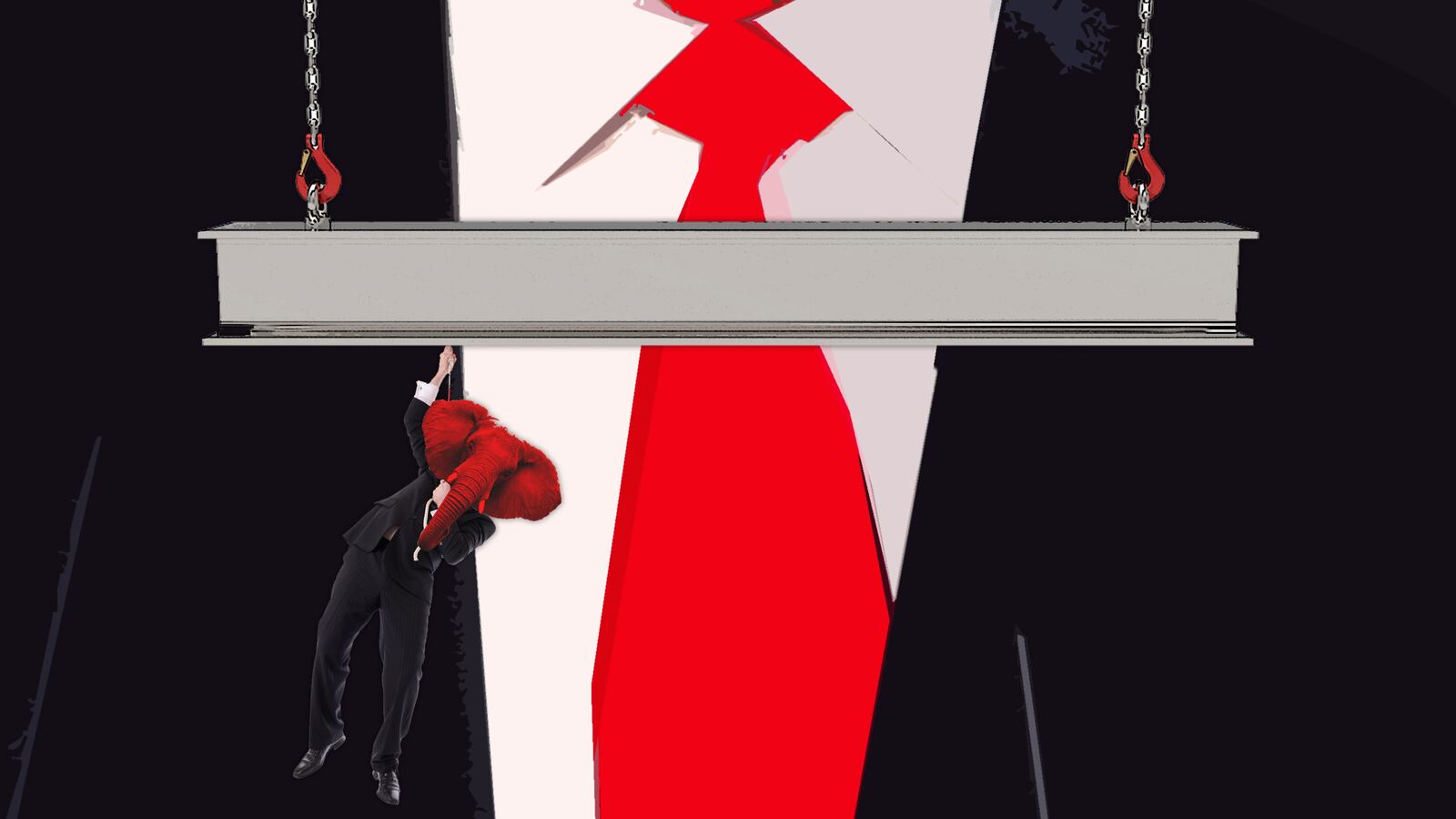Quickly, let’s review some of the things Donald Trump has done as candidate and president, and the Republican reactions to them.
Open racism? At least he’s not politically correct!
Serial alleged sexual predation? Eh…he said, she said.
Throw out Muslims? He didn’t mean that!
Possible collusion with Russia? No, Hillary!
Fired an FBI director investigating him? Good! Probe the FBI!
Behaves abominably and embarrassingly on a weekly basis? He’s just learning!
Has lawyer pay $130,000 in hush money to a porn star two weeks before the election? That’s not proof of anything!
Won’t impose Russia sanctions? [twiddling thumbs]
Witness tampering? [crickets…]
Steel tariffs? What? This is an outrage!
This? This is the bright moral line of the Trump era for the Republican Party, of all the things this guy has done? They happen to be right on the substance this time. Tariffs like this are a bad idea for all the reasons you’ve already read about. Other countries will retaliate. More workers are likely to suffer than gain. Prices will go up.
But the fact that they happen to be correct on the policy isn’t what we should focus on here. What we should be thinking about here is the fact that it took this, not any of the other things Trump has done, to make 107 Republican members of the House of Representatives publicly break with him.
I must say Trump did a pretty good job selling the tariff in his announcement Thursday afternoon. He emphasized a few plants that will benefit, and some no doubt will. He made his nationalist case in that grandiose way of his, which suggests that everything in the world is either completely awful or totally perfect: “Steel is steel; you don’t have steel, you don’t have a country.” He let some working men speak, one with an authentic Pittsburgh accent.
He was a little off on some of his numbers. He said “we lose $800 billion a year on trade.” Last year’s trade deficit, a figure released just Wednesday as it happens by the Commerce Department? $56.6 billion. [UPDATE: Actually, Trump's figure was correct, I apologize for the error.]
But it was an effective piece of theater. Probably a lot better than the GOP free-traders were bargaining for (especially considering that as of Thursday morning, there were questions about Trump was even going to follow through with the event at all).
So this Trump-GOP dance on trade can go one of two ways. On the one hand, there’s a chance this could get interesting. With the departure from the White House of top economic adviser Gary Cohn, who was against the tariffs, it looks as if the Smoot-Hawley faction in the administration has won for now. What other protectionist dishes might they cook up? In addition, this move will probably be challenged at the World Trade Organization. What if that happens and the WTO rules against the United States? Would Trump move to leave the WTO? This could make for some very entertaining, pass-the-popcorn schisms in the GOP over the next year or two.
But still I wonder: What exactly is the source here of Republicans’ shock and outrage? Trump ran on exactly this sort of thing. In fact he’s been saying it for many years, but as a candidate, he said hundreds of times he was going to do this. Here he is, for example, in January 2016 saying he wanted an across-the-board 45 percent tariff on basically all imports from “Jina.” Trump was ahead in the GOP polls at the time, but this was before a single Republican primary voter or caucus-goer had cast a single vote. In other words, if they were so outraged, these 107 brave souls and others like them could have said so, could have moved heaven and earth to prevent their party from nominating a protectionist.
They did nothing of the sort. Could they have stopped him? Quite unlikely. But that isn’t the point. The point is that no one ever tried. His opponents tried, because they wanted to beat him. But no one tried to stop Trump on principle.
Trump may be our problem, but he is their fault. We know this, but we forget it, and it’s worth it to stop and recall it from time to time. Any party with the remotest sense of commitment to the broad principles on which this country was founded—to any principle but the gaining of power—would have fought to the finish to stop an authoritarian nincompoop from wresting control of its nomination.
But they didn’t. They cowered and enabled every step of the way. They know better. They know how wrong it was for Trump to fire James Comey.
Of Trump, two possibilities exist: one, he actually didn’t know it was wrong, or two, he knew but since he literally has no conscience, it’s basically as if he didn’t know. But for the Republicans—they know. They know perfectly well what they should be doing, but they have backed down at every turn.
And that brings us, finally, to the other hand, which is that on the other hand, they’re probably going to back down on this, too. They’ll check and see how it polls. They’ll watch the results from that Pennsylvania special election next week, in steel country, although I’m not sure exactly what that will prove since both candidates came out in favor of the tariff. And in six months, unless the blowback is cataclysmic, the GOP will be a high-tariff party, just like it was, as Trump pointed out Thursday (and this time, accurately), under William McKinley.
One thing we know the tariffs won’t affect: Republican backbones. No steel in those.





